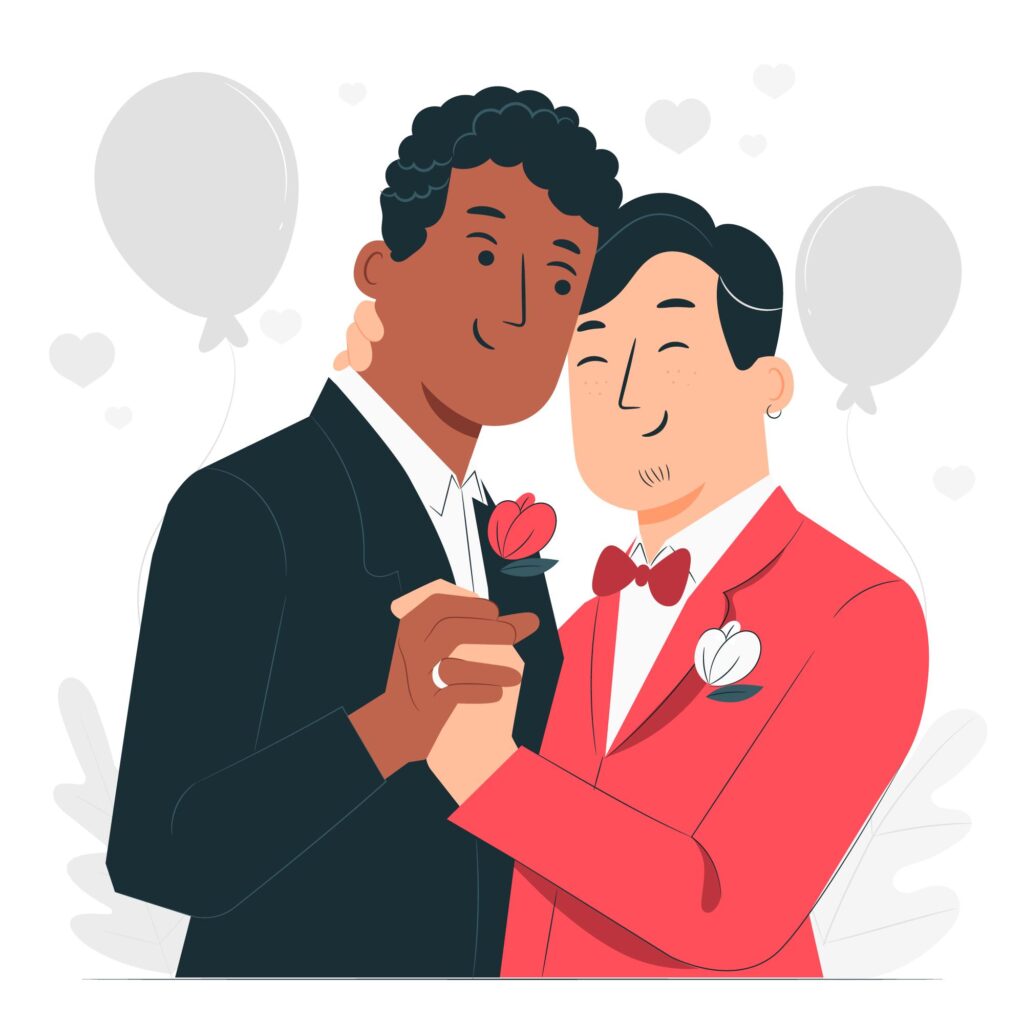Last updated on December 20th, 2024 at 01:25 pm
Gay marriage has been a contentious issue for many years, with opinions and beliefs varying significantly among different individuals and communities. On one hand, some believe that all individuals, regardless of sexual orientation, should have the right to marry the person they love and establish a legally recognized union. On the other hand, some argue that marriage should only be between a man and a woman, claiming that allowing gay couples to marry would undermine the traditional definition of marriage and harm society as a whole.
The Argument in Favor of Legalizing Gay Marriage

Advocates of gay marriage argue that denying same-sex couples the right to marry constitutes a violation of their fundamental human rights. They emphasize that all individuals should have equal rights and protections under the law, regardless of their sexual orientation. Additionally, they contend that denying gay couples the right to marry restricts their access to essential legal benefits, such as tax advantages, inheritance rights, and the ability to make medical decisions for their partners.
Additionally, supporters of gay marriage argue that legalizing it would help reduce stigma and discrimination against the LGBTQ+ community. By recognizing and legitimizing their relationships, it would convey the message that gay individuals are equally deserving of love, respect, and recognition as straight individuals.
The Argument Against Legalizing Gay Marriage
Opponents of gay marriage contend that marriage should solely be between a man and a woman, asserting that permitting gay couples to marry would undermine the traditional definition of marriage and negatively impact society as a whole. They argue that marriage has historically been regarded as a sacred institution designed to protect and promote procreation and the family unit. By allowing gay couples to marry, they believe it would weaken the institution of marriage and damage the fabric of society.
Moreover, opponents of gay marriage argue that legalizing it would create a slippery slope, leading to the eventual legalization of other forms of marriage, such as polygamy and incestuous relationships. They contend that this would further harm society and undermine the institution of marriage.
The Religious Perspective
Religion plays a significant role in the debate over the legalization of gay marriage. Some religious groups advocate for the legalization of gay marriage, while others strongly oppose it.
Supporters of gay marriage legalization argue that the right to marry is a fundamental human right that should not be restricted by religious beliefs. They contend that the principles of love, equality, and compassion should inform societal perspectives on this issue.
Conversely, religious groups that oppose the legalization of gay marriage contend that it contradicts their religious beliefs and teachings. They assert that marriage should be defined as a union between a man and a woman, as stated in their religious scriptures, and that same-sex relationships are morally unacceptable.
The Historical Context of the Debate
The debate surrounding the legalization of gay marriage is not a recent phenomenon. In fact, this issue has been a topic of public discourse for decades, with some of the earliest recorded instances of activism for gay rights dating back to the late 19th century. Over the years, the issue has gained greater visibility, as an increasing number of countries worldwide have legalized gay marriage, either through legislative means or by court ruling.
Despite the increasing number of countries that have legalized gay marriage, the issue remains highly divisive, with both opponents and proponents passionately advocating for their respective positions.
The Role of the Courts in the Legalization of Gay Marriage
In many countries, the legalization of gay marriage has stemmed from court rulings rather than legislative action. This is true in the United States, where the legalization of gay marriage has resulted from a series of landmark Supreme Court decisions.
In these instances, the courts have determined that denying gay couples the right to marry violates their constitutional rights to equal protection and due process. These rulings have elicited both celebration and condemnation, with supporters of gay marriage celebrating them as a triumph for human rights, while opponents criticize them as an overreach of judicial authority.
The Social and Political Implications of Legalizing Gay Marriage

The legalization of gay marriage has significant social and political implications, both positive and negative. On one hand, legalizing gay marriage is viewed as a means to promote equality and diminish discrimination against the LGBTQ+ community. By granting gay couples the right to marry, it conveys a strong message of acceptance and inclusiveness, aiding in the dismantling of barriers and fostering understanding.
Conversely, the legalization of gay marriage is viewed by some as a threat to traditional values and social norms. Opponents of gay marriage contend that it undermines the institution of marriage and jeopardizes societal stability, potentially resulting in a decline in traditional family values.
Conclusion
In conclusion, the debate surrounding the legalization of gay marriage is complex and emotional, with valid arguments on both sides. While some believe that all individuals should have the right to marry the person they love, regardless of sexual orientation, others argue that allowing gay couples to marry would undermine the traditional definition of marriage and harm society as a whole. Ultimately, the decision of whether or not to legalize gay marriage is a societal and political one that must be made by the individuals and communities it affects.


